Landowners are Essential Partner in Vermont’s Forest Products Economy
June 19, 2018
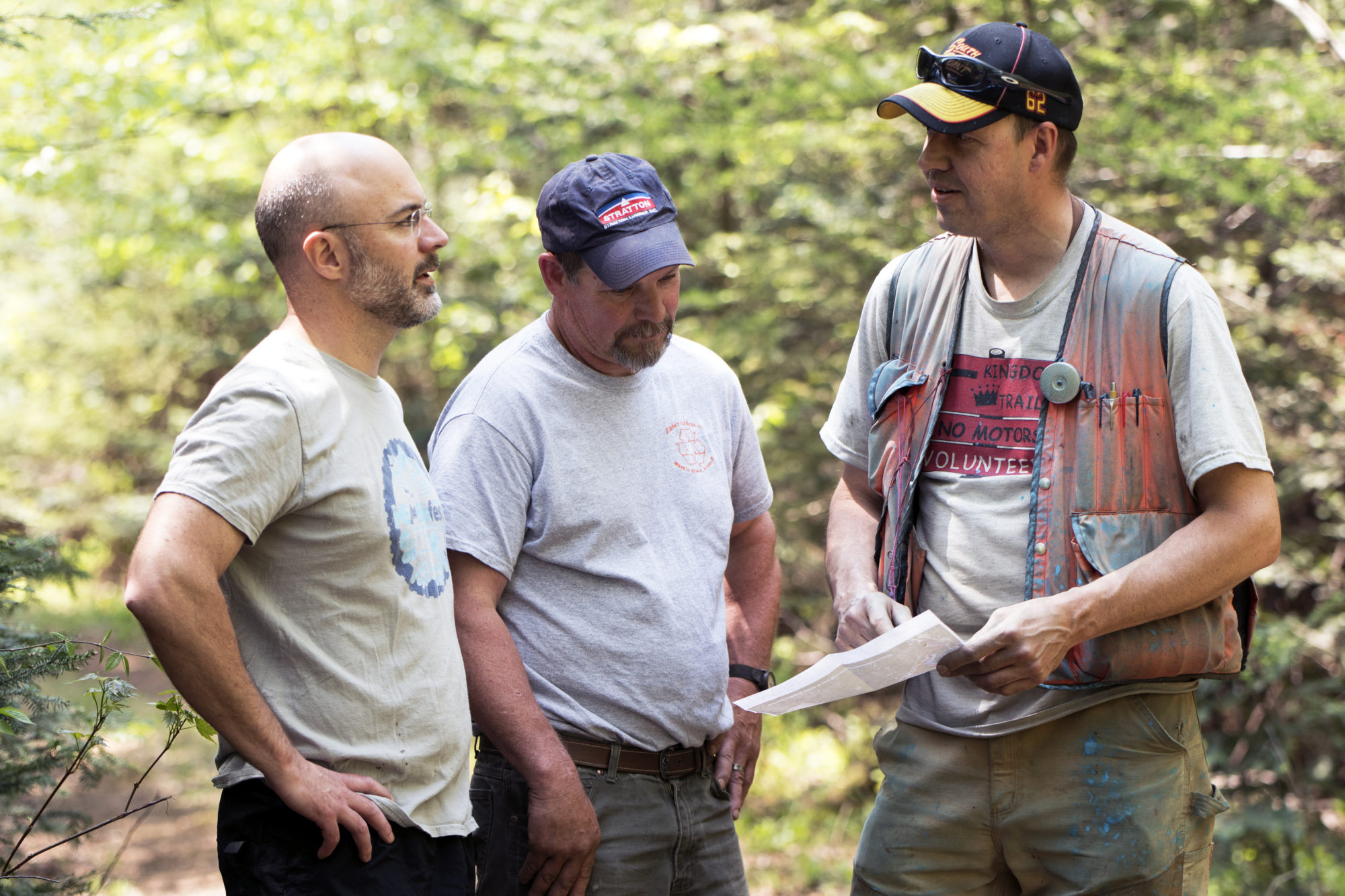
By Christine McGowan, Forest Program Director, Vermont Sustainable Jobs Fund
From urban forests to thousand-acre parcels, Vermonters own 80% of the state’s forested land.
Vermont’s forests are one of our greatest natural resources, contributing to the economy through industry and recreation to the tune of $3.4 billion, and supporting countless non-economic benefits such as clean water and wildlife habitat. Unique to Vermont, only 20 percent of our forests are owned by business or government, leaving 80 percent of Vermont’s forested landscape–more than 4.5 million acres– in the hands of private landowners.
“Private landowners play an important role in the health and utilization of Vermont forests,” said Kathleen Wanner, Executive Director of the Vermont Woodlands Association, an organization dedicated to the education, training and support of private forest landowners. “Regardless of how many acres you own, what you do with your land can have an impact on the health of the greater system. Even small forests are a big deal.”
Vermont Urban and Community Forestry
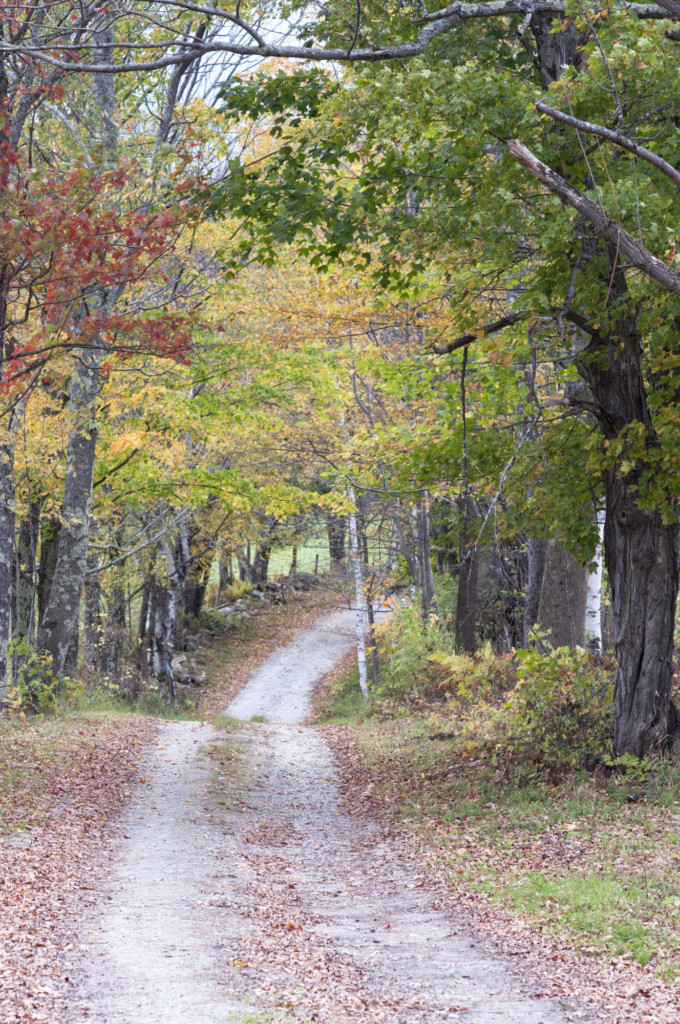
Landowners with less than 25 acres can learn more about their forests through the Backyard Woods Program. Photo Credit: Erica Houskeeper
For landowners with fewer than 25 acres, Wanner points to the Backyard Woods Program, designed to educate and help Vermonters to be good stewards of the forest. The six-week program, developed jointly by the Vermont Department of Forests, Parks & Recreation and UVM extension, offers videos, webinars, discussion forums, and weekly activities that lead landowners toward better understanding of their forest and, ultimately, to a Backyard Woods Action Plan.
“Demographics and land use are changing in Vermont,” said Kate Forrer, community forestry specialist with UVM Extension. “There is a lot more parcalization and fragmentation as 40 acre farms are broken up into four, 10 acre lots. It makes managing a forest more difficult when it’s broken up into smaller pieces.” Forrer says that her goal is to get people connected to their forest through education in the same way that the local food movement connects our food to farms. “Small-scale maple sugaring, harvesting firewood, creating trails, and improving habitat for bird viewing are the easy entry points to get people interested,” she says.
“There are a lot of reasons landowners choose to manage their forest,” adds Wanner. “Aesthetics, privacy, wildlife viewing, family legacy, recreation, hunting and fishing, and timber production are among the top reasons.”
An East Haven Case Study
Recreation was on Walter Norman’s mind last summer when he reached out to the Kingdom Trail Association to see about building mountain bike trails on his 1,100 acre property in East Haven, Vermont. “I sat down with Dave Senio, Keith Simoneau, and a few folks from the Kingdom Trails to see what we could do with the land,” said Norman. “They brought so much knowledge to the table and were able to look at the land through a much broader lens.”
Following that initial meeting, Norman contracted Senio, a consulting forester, and began working with professional trail builder Knight Ide, to create and implement a comprehensive management plan, including construction of the new trail. “People need a connection to the forest to be interested in forestry,” said Senio. “Trails offer that connection.”
To plan the new trial, Norman, Ide and Senio started with a tour of the property. Ide scouted the land for positive and negative control points, such as water, pitch, proximity to homes, views, and natural features that would be fun to ride. “The best trails follow the contours of the land,” he said, “and are built to be sustainable.”
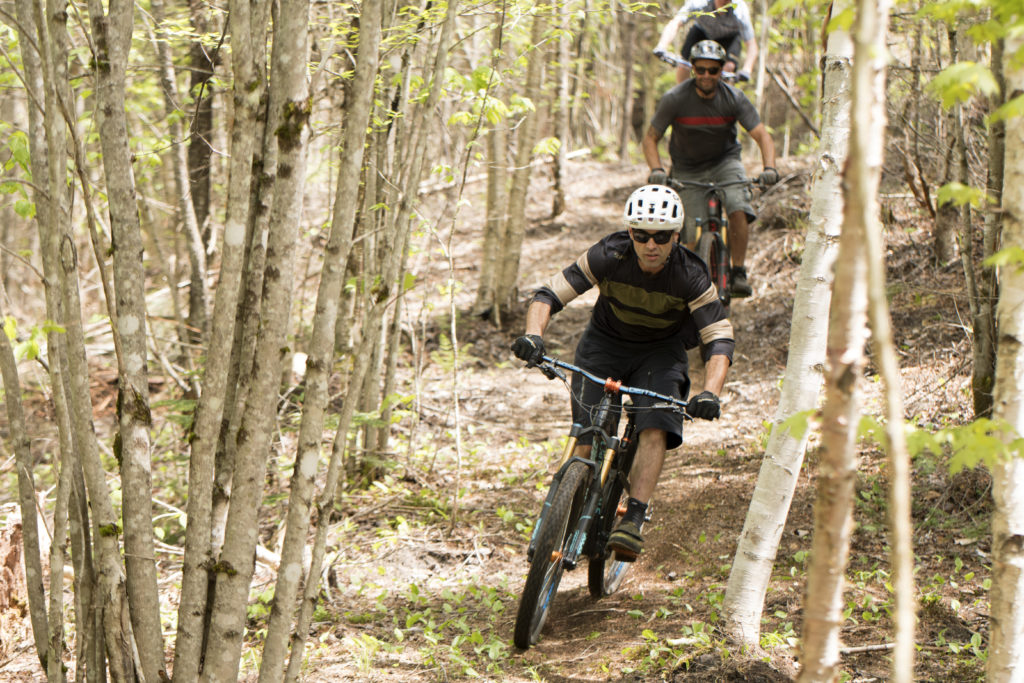
Knight Ide is an avid mountain biker and professional trail builder hired to design mountain bike trails on property owned by Walter Norman. Photo Credit: Erica Houskeeper
“From a forestry perspective, we looked at Knight’s ideas for the new trail and overlaid that with a timber inventory,” said Senio. “The preservation of wildlife habitat and long-term health of the forest were important to Walter, so we were careful to leave certain areas undisturbed and plan a harvest that would not impact the proposed trail.”
Local logger Keith Simoneau of Timber Gardens was brought in to conduct the harvest last winter. Simoneau notes that almost 100% of his logging business is connected to the local recreation economy. “Recreation in the Kingdom has created a lot of jobs,” he said. “There is more work for all of us.” Simoneau will sell the timber and firewood harvested this past winter, with a percent of profits going back to Norman.
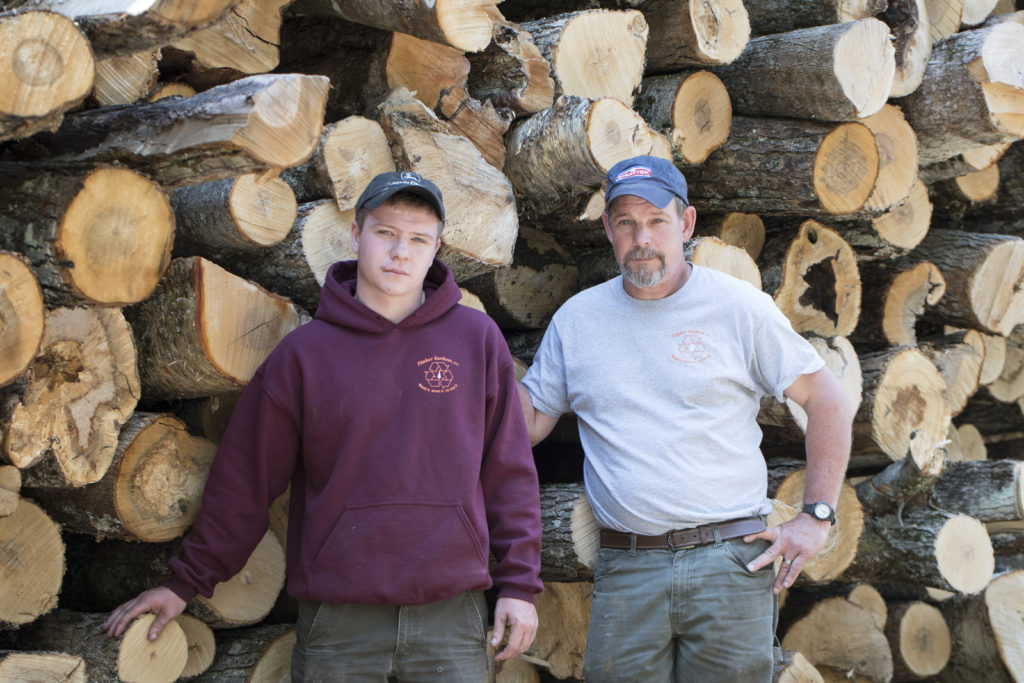
Keith Simoneau and his son Colten at their log yard in East Haven. Photo Credit: Erica Houskeeper
One year after that initial meeting, Norman, along with Ide, ride down a yet-to-be-named trail that is part of a newly built four-mile loop. During the planning phases, Ide identified additional trails and bike park terrain, so that eventually the loop could connect to the Kingdom Trail system. There is some hope that, in the long term, East Haven might replicate some of the success seen in nearby Burke with more recreation tourism leading to increased vacation rentals, jobs and restaurants in the area. “Thanks to Walter’s vision and generosity, we believe that directing and developing trails to and around East Haven can bring opportunity to the area just as it has in East Burke,” said Abby Long, Executive Director of the Kingdom Trails Association.
Overcoming Perceptions
Wanner sees projects like the bike loop in East Haven and the Woods, Wildlife and Warblers program in Southern Vermont, where landowners work with Audubon on bird-friendly management plans, as steps in the right direction toward creating healthy and productive forests.
“There is still a mindset among some landowners that harvesting trees is bad for the land,” said Wanner, “but net growth in Vermont has exceeded the cutting of trees since the first inventory in 1948, meaning that about twice as much wood has been grown than has been removed. It is true that nature will take care of her forests, but she often doesn’t know what you have in mind. When landowners value wildlife or recreation, that opens a door to engage and educate about the many benefits of active management– both for their own forest enjoyment and for the entire ecosystem.”
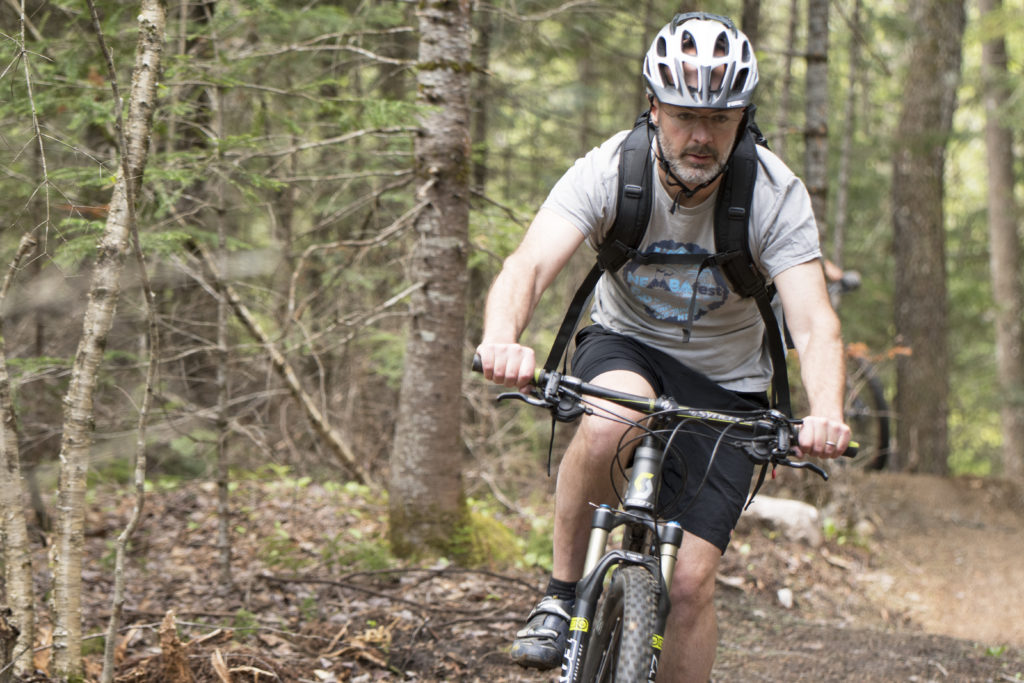
Landowner Walter Norman rides trails on his land that are becoming part of the Kingdom Trails network. Photo Credit: Erica Houskeeper
Norman wholeheartedly agrees. “East Haven has a deep history and connection to the forest economy. Adding recreational trails opens doors to economic advancement without closing off older, more traditional opportunities. The forest remains a forest, and these multiple uses– skiing, biking, logging, carbon sequestration, wildlife habitat enhancement– all coexist.”
Vermont landowners interested in learning more about their forestland can contact the Vermont Woodlands Association, the Backyard Woods Program, or reach out to their local county forester or conservation commission.
Vermont Forest Industry Network
The Working Lands Enterprise Board Forestry Committee and the Vermont Sustainable Jobs Fund will host the First Annual Vermont Forest Industry Summit on June 28-29 at Burke Mountain Resort. Vermont’s forest products industry generates an annual economic output of $1.5 billion and supports 10,000 jobs in forestry, logging, processing, specialty woodworking, construction and wood heating. The new Vermont Forest Industry Network creates the space for industry professionals from across the entire supply chain and trade association partners throughout the state to build stronger relationships and collaboration throughout the industry, including helping to promote new and existing markets for Vermont wood products, from high quality furniture to construction material to thermal biomass products such as chips and pellets. For more information please visit www.vsjf.org.
Lead photo: Landowner Walter Norman meets with logger Keith Simoneau and private forester David Senio. Photo Credit: Erica Houskeeper




